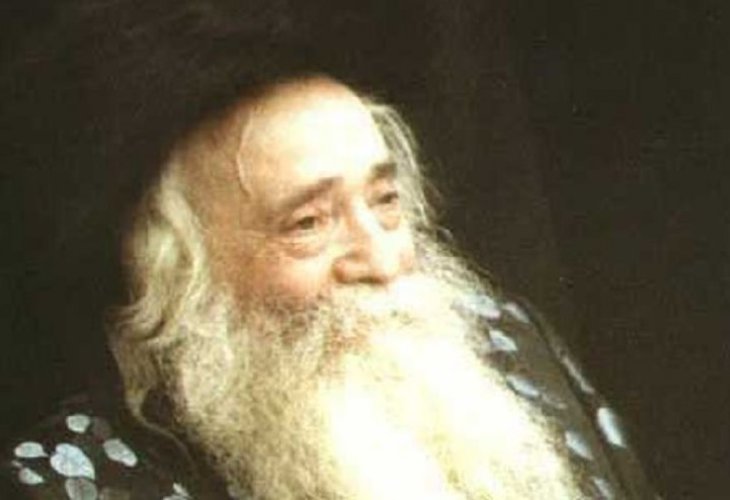Torah Personalities
Rebuilding from the Ashes: The Heroic Life of the Klausenberger Rebbe
After losing his wife and eleven children in the Holocaust, Rabbi Yekutiel Yehuda Halberstam built a Torah empire and a hospital founded on compassion

A Survivor Who Lost Everything But His Faith
This week marks 30 years since the passing of Rabbi Yekutiel Yehuda Halberstam, the first Rebbe of Sanz-Klausenburg. Known by the titles of his works Shefa Chayim and Divrei Yatziv, he was the founder of the Sanz-Klausenburg Hasidic dynasty and a spiritual force who reshaped postwar Jewish life in Israel and the U.S.
During the Holocaust, the Rebbe lost his wife and eleven children. He was sent to forced labor and survived under unimaginable conditions. When asked how he managed to endure such suffering, he responded simply: “I lost everything—my family, my home—but I did not lose God.”
Even as a child, the Rebbe was known for his deep compassion. In his old age, he recalled: “When I brought three slices of bread to cheder (traditional Jewish primary school), I gave two to a poor classmate and kept one for myself. If I had only one slice, I gave it all away. How could I eat when my friend was hungry?” He credited his parents for instilling this sense of mercy from birth, something he believed was once the norm in every Jewish home.
Devotion in Darkness
When the Nazis entered Klausenburg, the Rebbe endured unimaginable suffering. Even in the labor camps, he refused to eat non-kosher food, insisted on putting on tefillin, organized public prayer, and protected his beard from being shaved. He avoided violating Shabbat through clever ruses and refused to let others carry his work burden.
Despite severe beatings and humiliation, he would whisper verses like “God is righteous, for I have rebelled against Him” or “May my death be an atonement.” His behavior even softened the hearts of some of the Nazi-appointed overseers, who began to regard him as a holy man.
One day, while wearing wooden shoes, he found a leather scrap on the ground. Upon picking it up, he realized it was a piece of parchment from a pair of tefillin, inscribed with the words: “Beware lest your heart be seduced...” He burst into tears, grieving the desecration of the holy and sensing a terrifying message from Heaven.
At liberation, when U.S. soldiers offered food to the emaciated survivors, he was the only one who asked for kosher food because he was a Jew.
A Legacy of Kindness, Torah, and Healing
With unimaginable inner strength, the Rebbe rebuilt from the ruins. He founded a network of schools and Torah institutions for men and women under the name “She’erit HaPleitah” (The Surviving Remnant), starting in displaced persons camps.
He remarried and had seven more children, rebuilding the Sanz Hasidic dynasty, nearly wiped out during the war. He eventually moved to the U.S. and, in 1960, moved to Israel. There, he established the Sanz neighborhood in Netanya and, through his influence, similar communities in Jerusalem, Bnei Brak, Haifa, Tiberias, and Tzfat. He also founded schools and Torah institutions across the country.
Among his greatest achievements was founding the Laniado Hospital in Netanya, along with a nursing school and institutions for orphans. At its opening, he told the medical staff: “I’m not only insisting on strict observance of Shabbat, keeping kosher, and hiring top-tier doctors. Most importantly, I want every worker here to have a warm Jewish heart, love the patients, and see healing not as treating illness but as fulfilling the greatest mitzvah (Divine commandment) in the Torah.”
He often linked the idea for the hospital to a personal story from the Holocaust. After being shot in the hand, he was terrified to enter the Nazi infirmary, knowing it meant certain death. Instead, he pressed a leaf to the wound, wrapped it with a branch, and recovered. “Then and there,” he said, “I promised God that if I survived, I would build a hospital where doctors and nurses would believe in God and where healing would be an act of faith and love.”
The spirit of his vision was tangible. One Friday evening, just before Shabbat began, news reached the Sanz synagogue that a young woman in critical condition needed a rare blood type. Without hesitation, the Hasidim left their prayers and meals to donate blood.
When addressing his students, he would stress the importance of respecting parents and teachers: “This is the key to acquiring Torah,” he taught. He often told them: “I don’t only want you to learn the Talmud. I want the Talmud to teach you.”
The Rebbe once shared what he saw as the secret to his survival and success: “Even in the hardest times, I never had complaints against Heaven. Every wave that hit me, I accepted it with love.”
Rabbi Yekutiel Yehuda Halberstam passed away in Netanya on Friday night, the 9th of Tammuz, 5754 (1994). May his memory be blessed.
This article is adapted from the Dirshu website.

